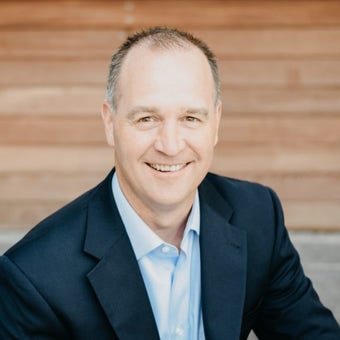Trump, Biden deliver closing arguments to voters ahead of Election Day
Speak Georgia Inc. co-founder Janelle King, Turning Point USA founder Charlie Kirk and Fox News contributors Sara Carter weigh in on ‘The Next Revolution.’
Judge Amy Coney Barrett’s confirmation to the Supreme Court is undeniable proof for even the most cynical among us that elections — and every single vote — matter.
The 2016 election was determined by around 100,000 people in Pennsylvania, Michigan and Wisconsin. Even though none of us could have predicted it, those voters in those three states effectively decided the future of the Supreme Court for generations. Barrett is now the third Supreme Court justice added to the bench in less than four years.
Now we are less than 2 days away from another consequential election that also could be decided by a few thousand voters, yet millions of evangelical Christians are not planning on participating.
This is particularly perplexing since evangelicals could easily determine the outcome of the 2020 election should they choose to participate. Historically, up to 25 million evangelicals who are registered to vote do not participate in presidential elections.
Why wouldn’t this community of believers use its tremendous voting power to advance their values?
Over the years, I have heard several myths that keep many evangelicals from voting. I’m hearing them yet again now that we are just 48 hours away from Nov. 3. Here are the four most common ones and how we should respond to them:
1. Christians shouldn’t be involved in politics.
Some evangelicals think engaging in politics requires them to align with a political party and to divorce themselves from their deeply held beliefs. They buy into the belief that their faith and politics do not and cannot mix.
To understand this mindset, let’s go back to 1954. That’s when Lyndon B. Johnson created the Johnson Amendment, which states that nonprofit organizations, including churches, cannot endorse a political candidate or advocate for political policies. Thus, many believers think their church must never do or say anything “political,” which has kept the church from speaking into important issues and has kept clergy from encouraging their congregants to vote.
But I would submit that our faith has something to offer to the problems we face in our communities. We should consider our vote not simply as a political exercise, but as a spiritual discipline.
2. My vote won’t make a difference.
I hear this all the time: “My one vote doesn’t matter.” This is especially repeated during presidential elections when we have an electoral college and not a majority vote.
More from Opinion
But this view disregards an essential element of our faith: God can multiply what we offer Him. United, believers can use their influence, resources and their vote to address social inequity, economic disparity and political inconsistencies. Yet, many evangelicals don’t connect their vote with their beliefs.
CLICK HERE TO GET THE OPINION NEWSLETTER
The belief “My vote won’t make a difference” also ignores the threats to biblical values, such as threats to the individual voter, religious freedom, vulnerable lives, justice and more.
By minimizing, ignoring or relabeling these threats, we fail to see how the balance of power could shift to leaders who seek to sideline biblical values, such as religious freedom, or advance agendas against the sanctity of human life.
3. I don’t have enough information.
Some people are unaware of election deadlines or feel like they have insufficient information to vote. It’s one thing to know how you will vote for president or for a member of Congress, but it takes time to obtain enough information to vote for candidates for your state legislature, county commissioner, school board, city council, mayor and municipal elections — not to mention understanding ballot measures and considering if they align with your beliefs.
This is why organizations such as My Faith Votes, where I serve as CEO, have created free voting assistance tools, and other online resources to help Christians learn about elections and candidates in their home state.
In an age when information is freely available to all, claiming ignorance is not a valid excuse.
4. None of the candidates represents my values.
Some evangelicals argue that because a candidate doesn’t align perfectly with their values or beliefs, then they do not deserve their vote.
The truth of the matter is that we will never have a perfect candidate. Some candidates we will like better than others, but we need to remember that we vote for policies, not personalities.
I always advise people to forget about the Twitter posts or TV sound bites and look at what a candidate has accomplished or is proposing in his or her campaign platform.
Do the policies align with your values and beliefs? Unfortunately, we tend to get distracted by the drama and sensationalism of American politics and forget that a policy can actually impact our communities, businesses and churches.
This year, the presidency, 470 seats in Congress, 11 state governorships, 748 state executive seats, 5,000 state legislature seats and over 100,000 local elections are at stake. There are undeniable consequences to these elections.
CLICK HERE TO GET THE FOX NEWS APP
Evangelical Christians are called to defend life, help the needy, speak up for the oppressed, stand for justice and uphold freedom of religion, speech, press, assembly and petition for all. But when we don’t vote, we allow someone else to make choices for us.
Inaction always costs something, and it is usually more than we anticipate.












































